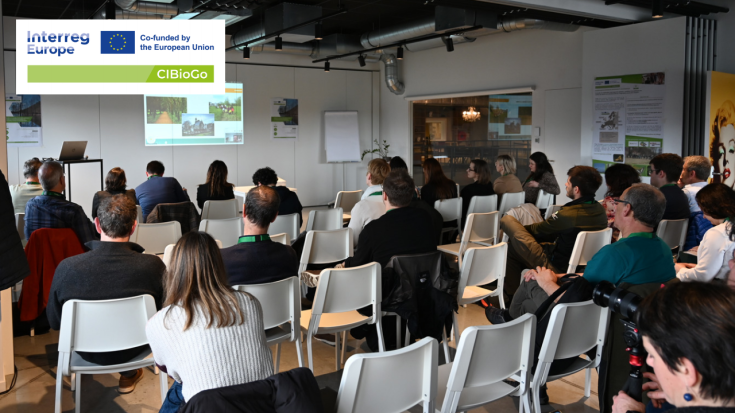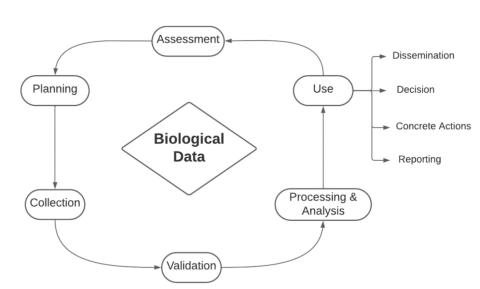First peer review, 1° day

On 19/03/2024 the partnership gathered in Namur, Belgium for the 1° of the 3 days of the 1° peer review visit.
After the opening of the event by the Service of Wallonia and the greetings by the Province of Potenza (LP), the project partners started with the “Master class” (MS) discussion, whose objective was to present the importance of biological data in the biodiversity governance mechanisms, since they play a founding and central role in the expression of conservation, communication and action issues.
“Biological data” consist in 6 processes:

Photo: Luc Derochette
▪︎Planning
It is a very fundamental phase because through the analysis of data it’s possible to define what is possesed and what is needed.
▪︎Collection
The main obstacles for the collection of data are: legislation/ administration (relationships between naturalists in the field and administration are not always easy) technology (difficulty to follow the evolution of new technologies, sharp increase in costs) fundings and socio economics (diversity of observers does not match society diversity).
▪︎Validation
After the collection phase, there is the validation one, since data need to be validated to see if they are corrected. Nowadays thanks to the new technologies (low cost and simple to use) it’s possible to take data without being invasive. Some validation tools are: artificial intelligence (AI), crowdsourcing via Zooniverse, and basic image recognition controlled by principal investigator and taxonomic expert.
▪︎Processing and Analysis
Which is more about the ways the data are processed and analyzed. Some limits are: informatic skills and materials investment, data quality (geography, taxonomy and uncertainty), legal obligations and so on.
▪︎Use
With this phase according to the data collected, the actions that have to be carried out are decided, in order to understand the impacts that projects may have on the biodiversity such flora and fauna, or in order to help the farmers to coexist with the biodiversity’s protection.
In the afternoon Ferenc Szigeti, a BURST Biodiversity Thematic Expert, summarized the most important trends and ideas about Cibiogo, the ecosystem services and their importance, and about urban biodiversity as a tool of social innovation to involve different layers of the society. The afternoon continued with the “Stakeholders Workshop” (SHW), whose objective was to consider ways to improve citizen involvement in the various processes related to the biological data. The partnership was divided into 4 different sub-groups (planning, collection, action, dissemination), each of which targeted a specific process of the biological data.
A sharing session concluded the workshop, to discuss the topics addressed by the 4 different teams.
